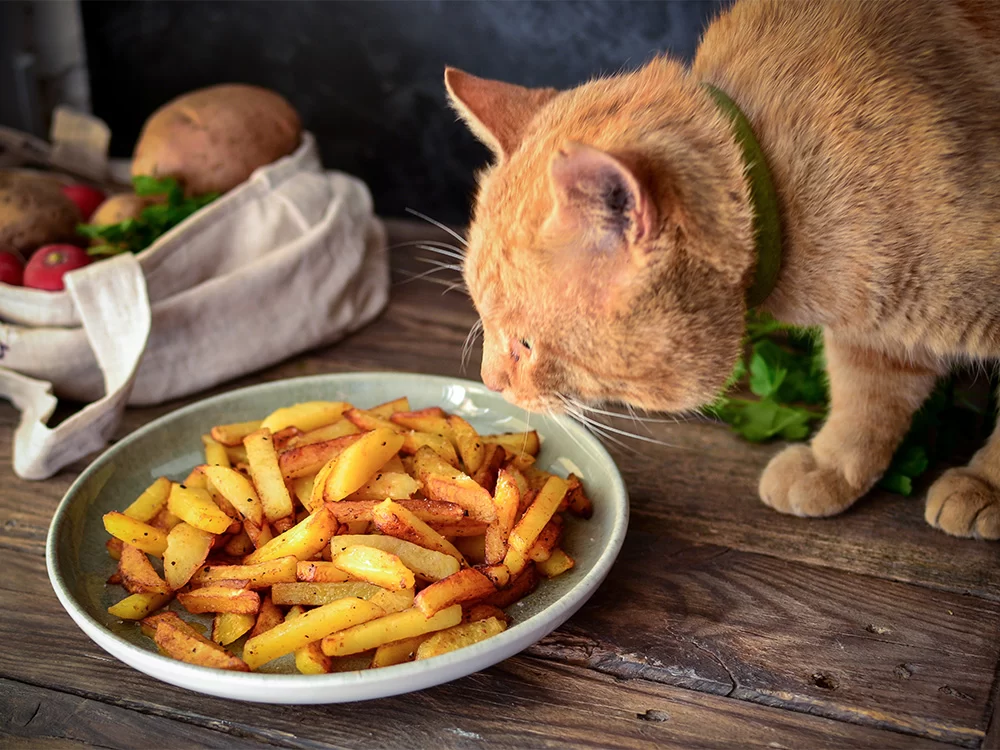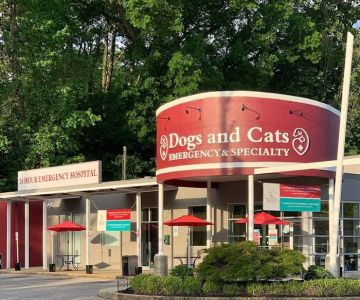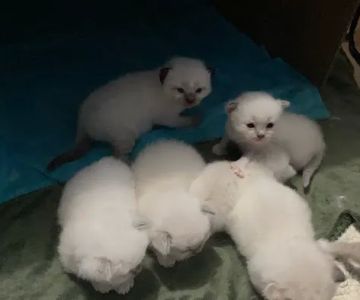Can Cats Eat Sweet Potato Fries? A Guide for Cat Owners
As a cat owner, it's common to wonder if it's safe to share certain human foods with your pet. Sweet potato fries are a popular treat among humans, but can cats safely eat them? While sweet potatoes themselves are generally considered safe for cats in moderation, sweet potato fries come with added ingredients and preparation methods that may not be ideal for your furry friend.
What Are Sweet Potato Fries?
Sweet potato fries are typically made by cutting sweet potatoes into thin strips and then deep-frying or baking them until they become crispy. Many recipes include the addition of seasonings such as salt, pepper, and sometimes spices like garlic or onion powder. These ingredients are often harmless to humans but may pose risks to cats. Understanding the composition of sweet potato fries is key to determining whether they are appropriate for your cat.
The Risks of Feeding Sweet Potato Fries to Cats
Although sweet potatoes are not toxic to cats, there are several factors that make sweet potato fries an unsuitable choice for feeding your cat regularly.
1. The Dangers of Oil and Frying
Sweet potato fries are typically cooked in oil, which can cause several issues for cats. Fried foods are high in fat, and excessive fat intake can lead to obesity, pancreatitis, and other health problems. Cats do not have the same ability to metabolize fat as humans, so consuming fried foods can put unnecessary strain on their digestive system.
2. Seasonings and Additives
Sweet potato fries are often seasoned with salt, pepper, and spices like garlic or onion powder. While a small amount of salt may not be immediately harmful, excess salt can lead to sodium poisoning in cats, causing symptoms like vomiting, diarrhea, tremors, and seizures. Garlic and onion powder are particularly dangerous for cats, as they contain compounds that can damage red blood cells and lead to anemia.
3. Risk of Obesity and Digestive Upset
Sweet potato fries are also high in carbohydrates, which cats do not need in large amounts. Cats are obligate carnivores, meaning they require protein and fat from animal sources to maintain optimal health. Excessive carbohydrate consumption can lead to weight gain and digestive issues, such as bloating or diarrhea. Cats have a short digestive tract designed for processing protein, and too many carbs can upset their stomachs.
The Benefits of Sweet Potatoes for Cats
Despite the potential risks associated with sweet potato fries, sweet potatoes themselves can be a healthy and safe treat for cats in moderation. Sweet potatoes are rich in vitamins like vitamin A and C, as well as fiber, which can aid in digestion. They can provide some nutritional benefits when prepared properly and given as a small portion.
1. Rich in Nutrients
Sweet potatoes are a good source of essential nutrients like fiber, vitamin A, and antioxidants. Vitamin A supports healthy vision and immune function, while fiber promotes healthy digestion. These nutrients are beneficial to your cat's overall well-being, but they should come from plain, cooked sweet potatoes, not from the processed and often unhealthy sweet potato fries.
2. A Healthier Way to Serve Sweet Potatoes
If you want to share sweet potatoes with your cat, it's best to cook them simply. Boiled or baked sweet potatoes without added salt, sugar, or seasoning are much healthier options than sweet potato fries. Simply remove the skin and cut the sweet potato into small, manageable pieces for your cat. Avoid adding butter, oil, or any seasonings that may be harmful.
How to Safely Include Sweet Potatoes in Your Cat's Diet
While sweet potato fries are not an ideal choice, you can incorporate sweet potatoes into your cat’s diet in a safe and healthy way by following these guidelines:
1. Serve Plain, Cooked Sweet Potatoes
The best way to serve sweet potatoes to your cat is by cooking them plain—either boiling or baking them. Avoid adding any spices, salt, or oils. This will ensure that your cat gets the nutritional benefits of sweet potatoes without any of the added risks from unhealthy ingredients.
2. Introduce in Small Quantities
As with any treat or new food, it’s important to introduce sweet potatoes to your cat’s diet in small amounts. Monitor your cat’s reaction to ensure they do not experience any digestive upset. If your cat has a sensitive stomach or a history of food allergies, it’s best to consult your veterinarian before introducing any new foods to their diet.
3. Use Sweet Potatoes as an Occasional Treat
Sweet potatoes should be viewed as a treat and not as a staple part of your cat’s diet. Their main source of nutrition should come from high-quality, protein-rich cat food. Treats, including sweet potatoes, should make up no more than 10% of your cat's daily caloric intake.
What to Do If Your Cat Eats Sweet Potato Fries
If your cat accidentally consumes sweet potato fries, don’t panic. If they ate a small portion, they may experience mild stomach discomfort, but they should be fine. However, if they consume a large amount, or if the fries contain harmful seasonings like garlic or onion powder, it's important to seek veterinary advice immediately. Symptoms to watch for include:
- Vomiting or diarrhea
- Lethargy or lack of appetite
- Signs of abdominal pain or discomfort
- Excessive thirst or urination
If you notice any of these symptoms, contact your veterinarian as soon as possible for guidance.
Alternatives to Sweet Potato Fries for Cats
Instead of sweet potato fries, consider offering your cat healthier, cat-friendly treats. Here are some great alternatives:
- Cooked chicken or turkey: Small pieces of lean, cooked poultry make a great protein-rich snack for your cat.
- Catnip: Most cats enjoy catnip, which can provide a fun, stimulating treat without the risk of harmful ingredients.
- Cat grass: Some cats love chewing on fresh cat grass, which can aid digestion and offer a natural treat.
- Commercial cat treats: There are many healthy, specially formulated treats available that are designed to meet a cat's nutritional needs.
Always choose treats that are specifically designed for cats, as they will offer the right balance of nutrients without any harmful ingredients.
If you're ever unsure about a food or treat for your cat, it’s always a good idea to consult your veterinarian. They can guide you in making the best choices for your cat’s health and happiness.
For more advice on feeding your cat or to discuss any concerns regarding your pet’s diet, consider visiting Hidden Brook Veterinary for expert guidance and recommendations.












